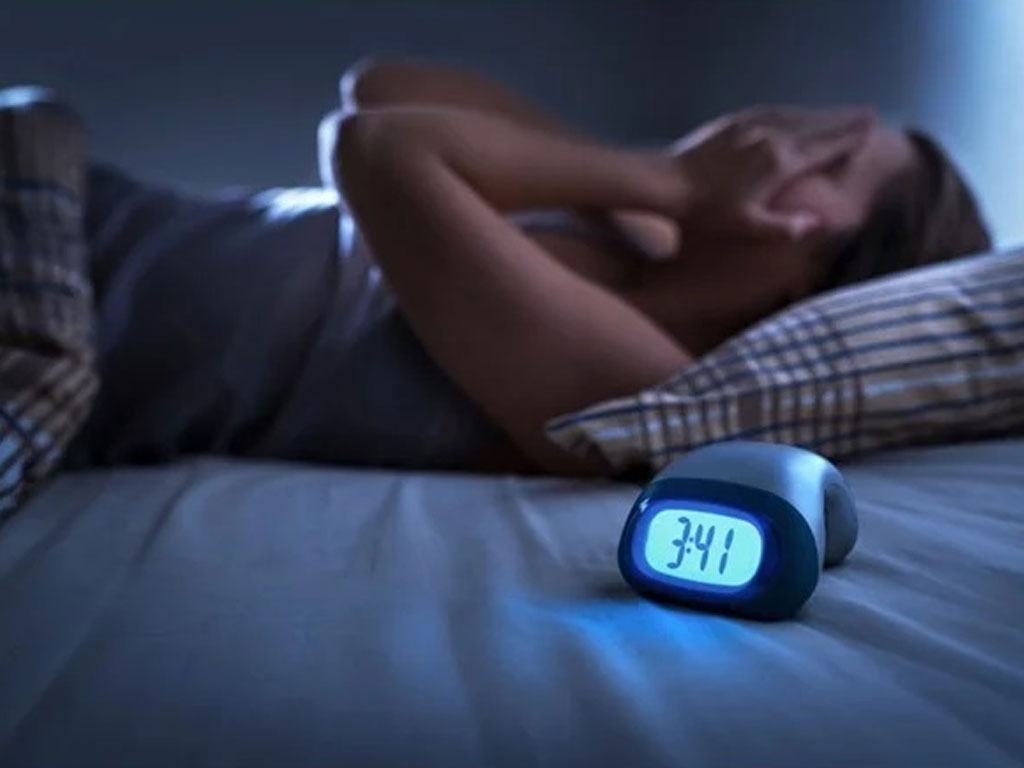What's On This Page?
ToggleCommon but Strange Reasons for Insomnia:
I’m cranky if I don’t sleep, are you? I am generally a good sleeper, but if I miss just one night of sleep, while writing a new book or article, for example…. I pay the price and feel miserable the whole day after. Do you feel that way too? There’s more violence associated with people who have insomnia, which doesn’t come as any surprise to me.
Results from a 2015 study published in The Journal of Sleep found that adolescents are more violent if they have insomnia, which is defined by poor sleep at least three nights a week for about a year; these kids commit more property crime and violence and it has nothing to do with their gender, hours of parental supervision or any other psychopathic features.
Most states enter into Daylight Savings Time in March. Beyond the obvious lost hour of sleep on the day we turn the clocks back, shifting everything up an hour upsets our circadian rhythm, which is the body’s instinctive way of ruling the sleep-wake cycle, making you feel more unbalanced than you would expect from losing just one hour of sleep.
In fact, you may be surprised to learn that the start of Daylight Savings Time is associated with a small increase in heart attacks, according to two different studies from the American Journal of Cardiology (2013) and the New England Journal of Medicine (2008). Other research has found an increase in car accidents (New England Journal of Medicine, 1996) in those first few days after the time change. On a brighter note, a 2015 study published in The Review of Economics and Statistics estimates a 7% decrease in robberies after DST goes into effect, saving $59 million in social costs. Maybe the burglars are too tired as well?
This research is fascinating to me, and it got me thinking about reasons you are not getting enough shut-eye. Right now, I’ll share 7 surprising causes of insomnia:
7 Surprising Causes of Insomnia

1. Taking thyroid medication at night.
Thyroid medicine is stimulating, so taking it at night can make you wired. It should be taken first thing in the morning on an empty stomach because that’s when you yourself produce thyroid hormone. As you produce thyroxine (T4) which converts to triiodothyronine (T3) you are going to feel more energized and refreshed. So take all thyroid medications in the morning, upon arising, never at night. The medications I’m referring to include Levothyroxine, Synthroid, Armour, Nature-Throid, Compounded T3, Levoxyl. These should all be taken in the morning.
2. Methylation.
This is a chemical pathway in your body that makes (and also breaks down) neurotransmitters like epinephrine (which is stimulating) and melatonin (which causes sleep). If your methylation pathway is cramped or hyperfunctioning, it causes an imbalance in the stimulating and calming neurotransmitters.
The MTHF gene mutation or “SNP” is present but not necessarily expressing itself in probably half of us including yours truly. I don’t express the gene SNP and one quick way to tell is by measuring homocysteine. It it’s normal, you’re probably in good shape. If the MTHF gene and methylation problems do express, it may trigger insomnia as well as seizures, agitation, combativeness, panic attacks and other “stimulating issues.” To learn much more about methylation and how you can take care of yourself, read this article I wrote about it.
Here’s my explanation in a few sentences CLICK HERE “Methylation in a Minute.” I also have a Keyring Pathway that shows you visually. You can see that by clicking on the little tiny icon that shows the actual pathway on this page HERE.
3. Quinolinic acid.
This is a neurotoxin that is made in our brains and we can produce too much of it for a variety of reasons. Sometimes you do it to yourself by taking sleep supplements containing L-tryptophan and not breaking them down properly into serotonin/melatonin, but rather they go down the kynurenine pathway in some individuals. Too much quinolinic acid (abbreviated as QUIN in medical literature) is bad, it’s an endogenous neurotoxin. It’s known chemically as “pyridine-2,3-dicarboxylic acid” which is why we like to simplify things and call it QUIN.
So again, this stuff is made in our brains and too much of it contributes to insomnia. People who are depressed or have suicidal thoughts and attempts will sometimes have high levels of quinolinic acid. It tends to be very high in people with cancer, Lyme disease, HIV, Alzheimer’s and other neurological disorders. If your quinolinic acid is high, drinking green tea helps bring it down.
4. Fluoride.
Drinking tap water or taking certain fluoride-containing antidepressants, medications or vitamins can harm your pineal gland. That’s bad because your pineal gland makes melatonin, your main sleep hormone. If you think fluoride is impacting your melatonin levels, which wane as you age, think about a supplement.
If you think fluoride is impacting your melatonin levels, which naturally decrease with age, you may want to supplement with melatonin. (Make sure you ask your doctor first.) I always suggest low dosages of melatonin like 1mg to 3mg (not more), because too much melatonin will suppress cortisol to the point that you feel groggy in the morning because cortisol isn’t experiencing its typical morning surge (the excess melatonin blocks it). It may help to switch to a non-fluoride toothpaste and filtering your water. There are dozens of medications that contain flouride, and you can use my search box to find the article where I posted those. If you take one, you can ask doc to switch.
5. Prescription drugs.

In addition to thyroid medication I already mentioned, many other drugs could keep you tossing and turning all night, including:
* Albuterol (These are inhalers by many brand names)
* Steroids (Prednisone, Prednisolone, Hydrocortisone, etc)
* Metoclopramide (Metoclopramide)
* Antidepressants (Especially the SSRIs and the SNRIs)
* Decongestants (Pseudoephedrine)
* Fluoroquinolones (Ciprofloxacin, Levofloxacin, etc)
Sometimes you have to switch therapeutic categories and take something altogether different, like a totally different category of drug. But also, if you are stuck taking one of these, then just try taking them in the morning rather than at night. It may (but not always) make a difference. And a word of caution, if you see something on this list and want to stop it, do NOT undertake a discontinuation on your own.
It requires medical supervision and a trained, licensed physician to help you wean off. You could spark a seizure or go into a dangerous state of withdrawal, so again, if you think a medication above is causing your insomnia, call the physician who prescribed it and develop a well-thought out plan to discontinue and titrate off slowly, do not suddenly stop.
What most of you don’t realize is that your physician will often “cure” your drug-induced insomnia if you take one of those meds above, with a benzodiazepine sleeper (like Ativan, Klonopin, Xanax) or a Z drug which is very similar (think Ambien). Don’t start those if you can avoid them. They are highly addictive.
I used to work in a rehab center in Florida and that’s all we saw! I saw it in nursing homes too, they put all the seniors on these drugs to put them to sleep. If you’d like to read more about more about benzodiazepine addiction and withdrawal, read my article entitled “Benzodiazepines Dangers and Lies.” CLICK HERE.
6. Chronic Pain.
Only 36 percent of chronic pain sufferers get regular good sleep, compared to 65 percent of people without pain, according to a 2015 Sleep in America poll conducted by The National Sleep Foundation. If you have pain, take a minute to read my article, The medicine your doctor never told you about (but should have).
7. Allergies.
Your environment matters. Itchy eyes, sinus congestion and frequent sneezing from dust or pollen allergies can keep you awake. To improve sleep, keep your bedding and pillows as allergen-free as possible. Get a clean new bed and buy a zippered bed-bug mattress cover immediately.
Consider changing from a down comforter to an organic cotton blanket. Close the windows if pollen count is high. Shower before bed. Remember to change daytime clothes before hopping into bed and regularly change sheets and pillowcases. Clean your fan blades of accumulated dust.
I hope this article helps you determine the cause of your insomnia. Ideally, you’ll find a simple remedy that that addresses the root cause of your insomnia because sleeping pills are not the answer. Benzodiazepines are NOT the answer. Drugs that put you to sleep just physiologically knock you out, like a chemical brick, and can cause long-term damage to your brain.
Further, some prescription sleep remedies are habit-forming, and lead to tolerance withdrawal and severe mental problems over time. I think we can all agree that it’s better to remedy the cause of your insomnia than to rely on medications for the rest of your life.
Related Articles:
Prescription Sleeping Pills and Natural Remedies for Rest
Natural Sleep Aid Valerian Must be Used With Caution
The Insomniac’s Dream Come True

Suzy Cohen, has been a licensed pharmacist for over 30 years and believes the best approach to chronic illness is a combination of natural medicine and conventional. She founded her own dietary supplement company specializing in custom-formulas, some of which have patents. With a special focus on functional medicine, thyroid health and drug nutrient depletion, Suzy is the author of several related books including Thyroid Healthy, Drug Muggers, Diabetes Without Drugs, and a nationally syndicated column.
